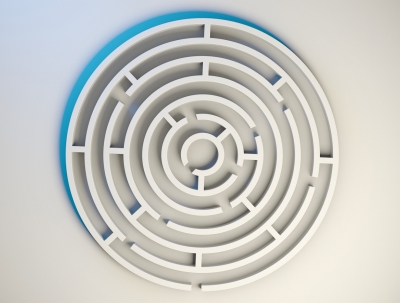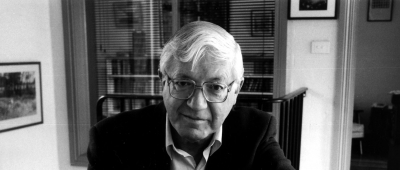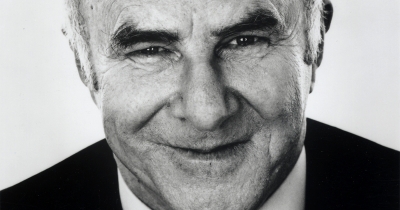Essays
Ladies and gentlemen, welcome to the brave new world of Museum Expansion Incorporated. Do you have an overstuffed museum? Is it situated, perhaps, next to an urban area in need of a makeover: some rotting docklands, say, or an abandoned flour mill? Are you privy, alternatively, to plans for a combined retail/office/residential development in need of that one extra component to give it the ultimate lift? Then buttonhole a politician eager for a good news story for a change, generate a pile of capital works grant applications, and take out some philanthropists for a really long lunch. You are now free to commission an architect or two. Either young and keen, or old and eminent, it doesn’t much matter as long as they have a creative vision expansive enough to sustain an innovative piece of ‘destination’ architecture.
... (read more)Though we have seen periods during which Australian cinema has been synonymous with period-set narratives and idealised evocations of the outback, there has always been a darker side to our cinematic imagination, a gritty, hard-edged element that is just as crucial to this country’s feature film output as are the sepia-tinged dreamscapes. Many of the pivotal films of the Australian New Wave brought a vivid, finely judged aesthetic to the bleakest of subject matter. Fred Schepisi’s The Chant of Jimmie Blacksmith (1978) conjured a harrowing tragedy of grisly murders and manhunts, while Peter Weir’s darkly comic feature début, The Cars That Ate Paris (1974), presented a paranoid, murderous rural community whose raison d’être was maintaining its seclusion, even if that meant killing any outsiders who found their way into town.
... (read more)In the teaching of copyright, it is usually said that copyright is an economic right. In Arnhem Land, they think otherwise. In 1990, I attended a meeting of Aboriginal artists in Maningrida. These artists had been involved in a copyright infringement case concerning the unauthorised reproduction of works of art on T-shirts. The case had settled, and the purpose of the meeting was to discuss the division of the spoils. The case involved a number of artists and different infringements by the same infringer.
... (read more)For there is always going on within us a process of formulation and interpretation whose subject matter is our own selves.
These words appear towards the end of Erich Auerbach’s study of representation in Western literature, Mimesis. First published in 1946, the book has become a classic of twentieth-century literary criticism, but is almost as famous for the circumstances under which it was composed as for its content. It was written between 1942 and 1945 in Istanbul, where Auerbach, a German Jew, was living in exile.
... (read more)A biographer follows the life of a chosen person or a chosen group or people, or perhaps a particular scene or epoch. An autobiographer, like a snail outed by the Sun, looks back at his or her tracks and tries to explain how he or she got this far, possibly hinting at vindication or in more extravagant mode, self-immolation. Unfortunately I am a poet, and a prose writer only to earn a living. My field is verse, but l am involved on a daily basis with literature in diverse forms, especially journalism, broadcasting, and reviewing. I believe also that I am a secret biographer and autobiographer, as so much of the poetry I write and read shadows the functions of biography.
... (read more)The art collections are the main thing in an art museum, not the special exhibitions or other programs necessary for present-day credibility and fundraising. Special exhibitions can be easy fast-food showbiz, or else they can be too authoritarian, over-theorised, and bullying. Collections, the bigger the better, are where you can drop in, any day of the year, for a bit of reinvention. It’s good to choose your own pace when you want to get out of yourself .
... (read more)La Trobe University Essay ‘Rupert Murdoch and the Culture War’ by David McKnight
Rupert Murdoch founded The Australian in 1964 as a bold statement or his belief that this country needed a quality national daily newspaper. His action was based on a nation-building vision that he shared with the leader or the Country Party, John McEwen, who deeply influenced him at that time.
For twenty years, The Australian lost money, a strange anomaly in the life of its ruthlessly commercial owner. In a 1994 address to the free-market thinktank, the Centre for Independent Studies, Murdoch mentioned these losses but argued that some things were more important than short-term profits – ideas in society. He went on to quote John Maynard Keynes’s famous lines about the significance of political and philosophical ideas to men who regarded themselves as supremely practical. In the media business, ‘we are all ruled by ideas’, Murdoch added.
... (read more)There is a difference between celebrity and recognition. Celebrities are recognised in the street, but usually because of who they are, or who they are supposed to be. To achieve recognition, however, is to be recognised in a different way. It is to be known for what you have done, and quite often the person who knows what you have done has no idea what you look like. When I say I’ve had enough of celebrity status, I don’t mean that I am sick of the very idea.
... (read more)The looter held a sign in one hand as he pushed a trolley overflowing with stolen goods in the other. His sign read, ‘Thank you, Mr Bush’. It was not, I suppose, the kind of gratitude George W. Bush had expected. The next day’s looting was not likely to raise a smile: private homes, great museums, and hospitals were ransacked. Vigilantes exercised rough and sometimes cruel justice. There will be worse to come when mobs catch Saddam Hussein’s brutal functionaries. Again, we will be reminded that oppression does not even make people noble, let alone good.
... (read more)'The Oily Ratbag and the Recycled Waratah: Early Years of ABR' by Kerryn Goldsworthy
This is issue no. 250, and the twenty-fifth consecutive year, of Australian Book Review. Issue No. 1 appeared in 1978, edited by John McLaren and published by the National Book Council. Since then the journal has survived and thrived, through changes of editor (though not very often) and of editorial policy (though not very much); through changes of appearance, ownership, sponsorship and affiliation.
... (read more)



